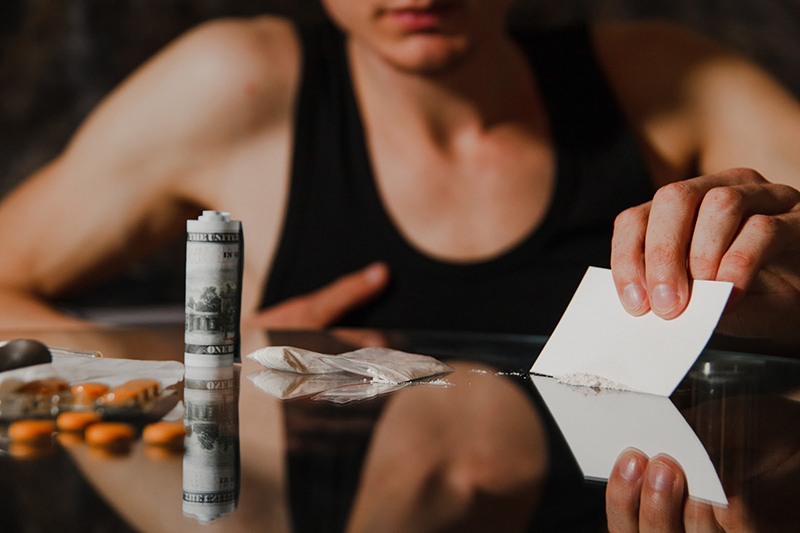How to Improve Mental Health
If you want to know how to improve mental health, the key may be halting your substance use.
In any given month, over 165 million Americans use an addictive substance.
That is more than half of the teen and adult population.
And whether or not you realize it, your drug or alcohol use may be damaging your mental health.
In fact, substance problems are a major source of mental health issues.
And without a sound mental state, it is impossible to maximize your sense of well-being.
No one should be left to deal with these kinds of issues on their own.
If you feel that your substance use is impacting your mental health, seek help as soon as possible.
This is by far the best way to avoid further problems and return to a healthier, happier way of living.

How to Improve Mental Health: Addiction as a Mental Illness
When thinking about how to improve mental health, it is important to keep something in mind.
Today, experts classify substance addiction itself as a form of mental illness. The term for this illness is a substance use disorder, or SUD.
You also qualify for a diagnosis of the same illness if you suffer from major, non-addicted substance abuse. Tens of millions of Americans have a substance use disorder.
The SUD category is an umbrella for multiple types of mental illness. Each of these illnesses is named for a class of addictive substances.
Examples of these names include:
- Alcohol use disorder, or AUD
- Stimulant use disorder
- Opioid use disorder, or OUD
- Cannabis use disorder
- Sedative, hypnotic or anxiolytic use disorder
Why are these conditions considered to be forms of mental illness? Because they significantly alter your state of mind and reduce your ability to function. They also change the way your brain works, and may physically damage your brain. In addition, SUDs alter your behavior and cause you to do harmful things you would not normally do.
A doctor can check if you have the symptoms of a substance use disorder. There are 11 different possible problems in affected people, including:
- Losing control of how much or how often you use drugs or drink
- Making substance use and related behaviors the focus of your daily routine
- Growing less and less sensitive to the effects of drugs or alcohol
- Having a habit of using addictive substances in risky or dangerous situations
- Not being able to quit drug use or drinking, even with repeated efforts
- Failing to meet your responsibilities because of your level of substance use
- Substituting drinking or drug use for other activities you once loved to do
- Experiencing social or relationship issues as a direct result of your substance use
- Feeling powerful urges to drink or take drugs throughout your day
- Developing symptoms of substance withdrawal if you quit or cut your consumption
Some of these problems are strictly related to addiction. Others reflect the presence of non-addicted abuse. From a mental health standpoint, addiction and major, non-addicted substance abuse are equally serious. What is more, they often occur simultaneously.
Immediate Placement in Mental Health Treatment and Dual Diagnosis Treatment Programs – Get Help Now
877-651-3366
How to Improve Mental Health: Dual Diagnosis
Unfortunately, some people with SUDs also have other mental health issues to deal with. This is not a rare problem. In fact, for every two people with a SUD, roughly one will be affected by an additional mental illness. The same statistic holds true in reverse. In other words, roughly one out of every two people with a mental illness also has a SUD.
What kinds of mental illnesses are most likely in people with drug- or alcohol-related SUD? The list of these conditions includes anxiety-based disorders such as:
- Panic disorder
- Generalized anxiety disorder
- Posttraumatic stress disorder, or PTSD
Other commonly found illnesses include:
- Depressive illnesses like major depression
- Bipolar illnesses like bipolar I disorder
- Antisocial personality disorder
- Borderline personality disorder
- Psychotic illnesses like schizophrenia and related conditions
- Attention deficit hyperactivity disorder, or ADHD
The current standard term for co-occurring SUDs and additional mental illness is dual diagnosis. Dual diagnosis is a serious concern because it often has a double negative impact on your well-being. This is why it is so vital to understand the importance of mental health.
When it is present, it can make both your SUD and additional mental illness symptoms worse than normal. This double whammy on your mental health poses significant treatment challenges. For this reason, the question of how to improve mental health in people with dual diagnoses is vital.
Learn More About Dual Diagnosis Treatment at Best Rehabs In Arizona – Call Today
866-263-1847
How to Improve Mental Health: Treatment for SUDs
If you have a SUD, professional treatment should be a top priority. There is a range of treatment environments available, including:
- Medically supervised detox, or detoxification
- Inpatient programs
- Partial hospitalization programs
- Intensive outpatient programs
- Standard outpatient programs
Your doctor can help you find the right option for your particular SUD symptoms. Once you are enrolled in the right kind of program, you will receive help tailored to your needs and understand the importance of mental health. This help may include:
- General supportive care
- Medication
- Behavioral therapy or counseling
While in treatment, you will benefit from the experience of addiction specialists. You will also learn how to improve mental health through your own efforts. As a rule, you should pursue some kind of follow-up treatment once your primary rehab program is over. You can also further your recovery by joining a mutual self-help group.
24-Hour Mental Health Rehab Hotline – Get Help Now
877-651-3366
How to Improve Mental Health: Treatment for Dual Diagnosis
It takes a special effort to improve mental health if you have a dual diagnosis. Why? Not only must you get help for your SUD symptoms. You must also get help for your particular form of additional mental illness. This two-part treatment is essential. Without it, your mental health will likely continue to suffer.
Mental health and addiction facilities may use medication for two aspects of your dual diagnosis treatment. First, you may receive a medication targeted at your SUD symptoms. In addition, you may receive something targeted at your other mental illness symptoms.
Other forms of treatment are also used in dual diagnosis programs. For example, you will almost certainly be treated with behavioral therapy or counseling. There are specialized therapy options available for people with dual diagnoses. One such option is called Dialectical Behavior Therapy, or DBT. You may also receive a more widespread use SUD therapy such as:
- Cognitive Behavioral Therapy, or CBT
- Motivational Enhancement Therapy
- 12-Step Facilitation Therapy
- Family Behavior Therapy
- Contingency Management Intervention
Get More Information on How to Improve Your Mental Health
More than 20 million Americans suffer from mental illnesses called substance use disorders. And many of those affected must also cope with additional, serious mental health issues. If you feel you may have a SUD or dual diagnosis, professional treatment is a must. Otherwise, you may find yourself caught in a worsening spiral of mental and physical despair.
Most people with SUDs do not seek help. It is crucial that you do what you can to escape the ranks of the untreated. Every day, mental health and addiction facilities support recovery from SUDs and dual diagnoses. Some of the very best facilities provide all of the services you need in a single location.
Need more information on how to improve your mental health and protect your well-being? After all, the importance of mental health is crucial during and after recovery. If your concerns are substance-related, just called the specialists at Best Rehabs In Arizona. Our deep expertise gives us the ability to answer any question you may have. Best Rehabs In Arizona is also a top destination for the treatment of SUDs and dual diagnosis. We offer programs suited to anyone affected by these pressing mental health issues and the importance of mental health overall.
Free Insurance Verification for Mental Health & Addiction Rehab – Get Help Now
877-651-3366







